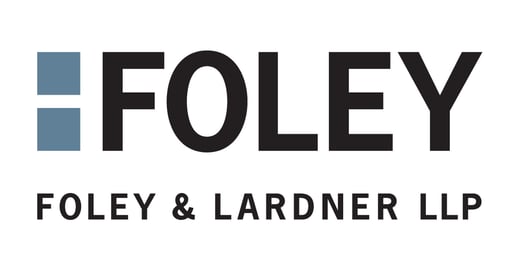Add speed, consistency, and transparency into your contract negotiations.
The problems with informal contracting policies
As an in-house lawyer, a huge chunk of your working life revolves around contracting policies. Each week, hours and days are devoted to ensuring that the terms and clauses of contracts are favourable to your company, or at least not prejudicial: that the must-haves and non-negotiables are in place so there is a satisfactory and legally-binding outcome.
However, many companies are still being undermined by outdated and inefficient structures when it comes to formulating contracting policies. Instead of a codified set of guidelines with universal access and clear accountability, many firms are battling with amorphous and even contradictory policies with no clear chain of authorship, trapped in knowledge silos. All too often, when negotiators sit down to thrash out a deal, these failings force them to go in blind.
In this blog, we’ll argue that the traditional structures behind contracting policies deserve a digital makeover. Just like other key facets of the lawyer’s work, such as billing, discovery and time management, this is an area of the profession that can achieve real gains through the application of technology.
In this context, ThoughtRiver proposes the creation of a new digital asset, specifically for contract review: a digital risk playbook that condenses all the company’s contract policies into a single document, which can be accessed by everyone in the company and can be referred to and updated instantly.
Accenture defines a playbook as a document that “contains the strategies, approaches, programs, actions, etc., – the ‘plays’ that the company executes in its operations. A playbook reflects a plan; an approach or strategy defining predetermined responses worked out ahead of time.”
Specifically, we feel that the creation of a digital playbook dedicated to risk management can make contracting policies simpler, clearer and more transparent, unlocking efficiency gains across the entire organisation.
We believe there are six key benefits to this proposal.
1. The need for contracting speed
The key benefit of legal tech is its speed, and nowhere is this truer than in the field of automated contract reviews. Digital contract review software uses artificial intelligence and machine learning to extract the key phrases within a document and compare them against thousands or millions of precedents. In ThoughtRiver’s case, wording is compared against both your existing portfolio of contracts and market norms.
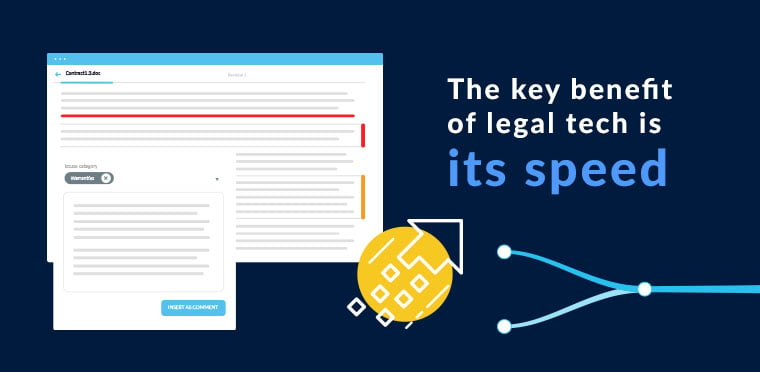
For in-house lawyers who are already grappling with a plethora of other essential tasks, and having to work against the bleak backdrop of the pandemic, these benefits can be crucial. There is no longer a need to spend hours reading the entire contract. The ThoughtRiver platform will do that in a fraction of the time, issuing a risk report that highlights where input from a human lawyer is required.
Contracts are no longer ‘stuck in legal’ and deal momentum is not lost. Crucially, it allows businesses to realise the full value of each negotiation and pull revenue into the company faster. World Commerce & Contracting says up to 9% of all companies’ revenue is drained by poor contract management, so any initiative to add speed into the contracting process is to be welcomed.
2. A uniform approach to contract reviews
Who has defined your firm’s contract policies?
The answer may well be you yourself, of course. The role is, ostensibly, designed for lawyers, whether in-house or on retainer. But, in many cases, the policies will have been drawn up by somebody else within the business.
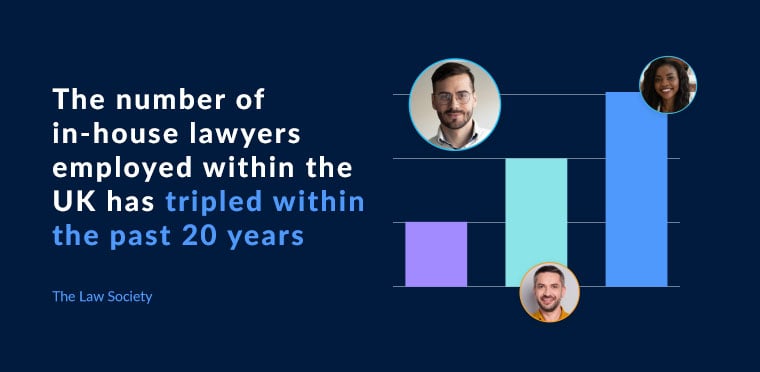
According to The Law Society, the number of in-house lawyers employed within the UK has tripled within the past 20 years. While this shows the potential of the sector and the value that both in-house lawyers and GCs provide, it also suggests that many firms have only recently taken on their own legal specialist. In many cases, the task of drafting the contractual do’s and don’ts will have been performed by somebody else, either the CEO or another senior member of the team, at an earlier stage of the company’s evolution.
For lawyers charged with drawing up contracts, this can present manifold problems. You may find that the existing policies are not up to scratch. Alternatively, you may find that the contracting policies were written by someone who has left the company, or someone who is unable to explain them to you in simple terms. And there’s a good chance that you won’t find a single document containing these policies. Much like the English constitution, it will be buried in a warren of knowledge banks, many of them inaccessible.
This laissez-faire attitude can lead to practical problems down the line. Inconsistency can creep in without you realising. A firm may follow best practice for larger transactions, but then allow standards to slip for lower-value agreements.
To cite just one example, it’s highly recommended to draw up an issues list before the talks begin; this list allows lawyers to identify potential problems or pain points in the negotiations and ensure clarity around who owns each issue and what needs to happen for them to be resolved. But issues lists take time to develop, and some companies may feel they’re not worth the effort when concluding smaller deals.
Whereas the old-fashioned approach to contract management left the possibility for inconsistency in the contracting process, this new, digital approach applies the same process every time.
Every single policy is reviewed in the same manner, with no room for discrepancy. This means that there are consistent standards and language applied through each and every contract, without the sort of disparities that can prove so costly.
3. Risk management objectivity, not subjectivity
A reliance on the traditional system of uncodified, often undefined contractual policies, runs the risk of lawyers being left in the dark. Contractual knowledge will be tied up in specific individuals, some of whom may even have left the business. In a world defined by flexibility, with teams popping up and down to meet breaking demands, this way of working is simply untenable.
The solution is to use a non-human system to document, store, and apply human-defined policies. Automated contract review platforms are trained to identify risk based on how human lawyers identify risk. It is a scientific process that relies on data and logic.
Of course, there will be many who argue that artificial intelligence is no substitute for the human mind. But consider this: AI is not subject to prejudice. It doesn’t lose its focus or soften with age. It doesn’t require holidays, sabbaticals or any other interruption. And, crucially, it isn’t defined by its own field of vision.
Whereas a human lawyer is limited to the amount of cases and contracts he or she has discovered, an automated contract review platform can compare infinite amounts of data to suggest the best wording for a business.
4. Company-wide visibility to contracting policies
In 2017, professional services giant KPMG published a thought-leadership piece on the value of supply chain capacity management. In the article, the firm’s contract management lead suggested that, without proper management of suppliers and their teams, a company can lose around 40% of the value of a contract during its lifetime.
This is just one of many stats that illustrate the value of effective contracting policies. For those who serve as an in-house lawyer or a general counsel, this will come as little surprise. Efficient contract management is paramount to business success, which means the whole business needs to be interested in contracting processes.
A digital risk playbook is universally accessible. Everyone who needs it knows where it is, and it is stored in one central place where every single team member can reach it.
The clear benefit here is the removal of data or knowledge silos. When sales, procurement and legal all understand what terms are and are not acceptable, the negotiation process is far more efficient and streamlined. The business will never have to go into their discussions blind, or waste time discussing terms that will need to be amended further down the line.
To deliver such contracts, we need our policies to be contained within a single, tangible playbook that is accessible to everyone within the organisation. With such an asset in place, we can continue to modify our policies as each new innovation (or Covid-style mega-event) bursts into our space. We can ensure that our policies evolve with our own commercial priorities.
And, crucially, we can create terms and clauses that go beyond our own protection; we can start to weave in phraseology that reflects our company’s long-term requirements, and facilitates the new breed of formal relational contracts for our industry.
5. Adaptability to evolving risk
Sharper and more progressive companies have used data to draft the minutiae of their contractual standards, researching their market and their own performance to tease out their point of advantage.
However, contracting policies in less mature organisations may be based on nebulous and intangible grounds. This is because a lot of companies are still getting up to speed within modern data practices.
According to research published in 2019, the typical employee wastes two hours a day simply searching for the data they need. In all-too-many cases, companies have based their contracting policies on ephemeral factors such as instinct or preconception, rather than hard facts.
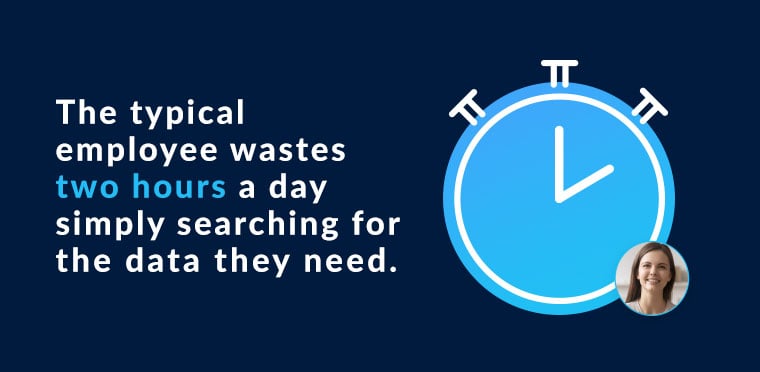
There’s another major reason to streamline our approach to contractual policies: the fundamental change we are witnessing in the role and scope of contracts themselves.
Historically, contracts have been rigid, limited and fixed-term. They have been designed to protect each party’s basic rights and establish a series of minimum requirements from either side. Essentially, the contract has been defined on negative lines, by mistrust and self-preservation.
However, as the Harvard Business Review put it in an excellent article shortly before the outbreak of Covid-19, a new approach is now required. In this brave new world of agility and innovation, we need contracts that go beyond the old minimum obligations. These new contracts must be based on trust and ambition, providing broad-brush goals rather than minutious requirements. Most importantly of all, they must be adaptable, capable of providing for future waves of innovation. In the words of HBR, we must embrace a new era of ‘formal relational contracts’.
Another key benefit of artificial intelligence is its flexibility. It can adapt to changes in the market, or society at large, to identify areas where contracting policies can be updated or even removed.
Contracting policies aren’t a ‘one and done’ deal: skilful negotiations rely on moving with the times and seeing the bigger picture as markets evolve and environments change. A digital risk playbook can achieve this.
6. Adding years of experience to in-house lawyers
It’s all too easy for knowledge and experience gaps to develop; a more senior lawyer may interpret a policy differently to their more junior colleague, while a senior director who has been with the business 30 years may have a very different take than a Gen Z new starter.
By digitalising the assessment of risk and the approach to negotiations, every single team member has as much knowledge as the most experienced person in the group.
The digital risk profile maps out all the potential downsides and consequences in one place, eliminating knowledge gaps at a stroke. If a junior lawyer is faced with an unfamiliar scenario, they can tap into the playbook and find out how best to proceed.
Companies that want to develop young, hungry talent will face no penalty for doing so, and those that lose staff won’t be disrupted (a major consideration at a time when workforce turnover rates are nudging all-time highs).
ThoughtRiver’s solution: The Contract Acceleration Platform
ThoughtRiver has built the Contract Acceleration Platform to maximise each of the benefits mentioned above. We provide a smooth, versatile approach to contracting that fits the post-pandemic world and helps businesses get to signature faster.
AI is crucial to the platform. The Contract Acceleration Platform uses in-built AI functionality to review each new contract against the parameters laid down in the playbook and identify all the risks in seconds.
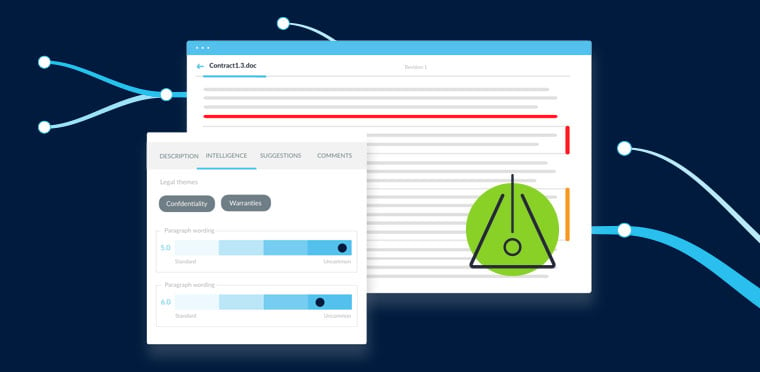
At the same time, the ThoughtRiver platform learns from the responses its users provide. Once the AI has identified the risks, the platform observes how human lawyers react to the wording that has been flagged. So the risk reports are constantly adapting.
Most significantly of all, ThoughtRiver gives every single member of the company the same knowledge and experience. It adds years of experience to junior lawyers by letting the technology guide the contract review process.
Let’s push this thinking one step further. AI-based risk modelling, using a combination of the risk playbook and forensic analysis of previous negotiations, means that, in theory, anyone in the company can conduct a first review. There is no need for them to have legal knowledge. Sales, marketing and accounts personnel can all undertake the review themselves.
With ThoughtRiver, contracts will no longer be ‘stuck in legal’. Non-legal colleagues are empowered to manage contracts, which translates into more deals, higher revenues and fairer distribution of responsibilities.
The technology, smart as it is, is not designed to replace people. Human skills such as discussion, debate and relationship-building will always be fundamental to effective negotiation. However, the manual grind of time-consuming contract reviews is a task that is prime for automation, freeing up lawyers to dedicate more time to higher-value legal activities. And now, we have the technology to take that leap.




